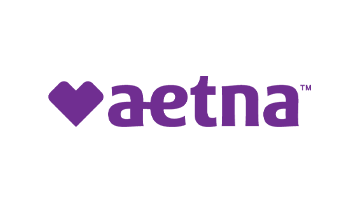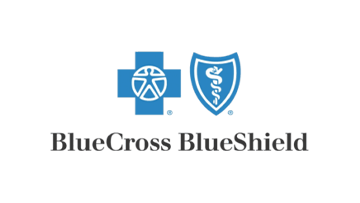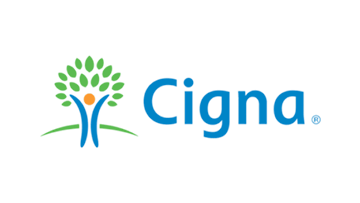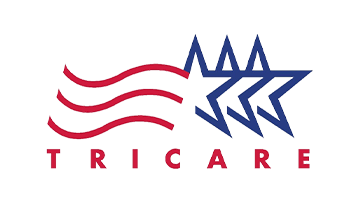Visit Us
Get Directions
At Benchmark Transitions, we recognize that not every individual can commit to a 24/7 residential treatment program. However, many individuals still require structured and consistent support to overcome addiction or co-occurring mental health issues. Our intensive outpatient program (IOP) in Redlands, CA, offers a flexible solution, allowing individuals to receive treatment while continuing their everyday responsibilities, such as work, school, or family obligations.
With over 30 years of experience helping individuals achieve lasting sobriety, Benchmark Transitions provides a comprehensive, individualized approach to mental health and substance abuse treatment. Our IOP offers a balance of structure and flexibility, allowing you to maintain your life while receiving the intensive care required for recovery.
Intensive outpatient programs are a step down from residential treatment but still provide a high level of care and support. Clients in IOP attend therapy sessions and treatment several days a week, for a few hours each day. This allows them to return home in the evenings, attend work or school, continuing their daily activities while receiving the care they need to begin their journey toward recovery.
IOP at Benchmark Transitions is designed for individuals who:
Looking for flexible, experienced care? With over 30 years in addiction and mental health treatment, Benchmark Transitions’ IOP in Redlands, CA, provides the necessary structure and support for lasting recovery.
Contact us today to learn more about how we can support you on your journey.
IOP offers several advantages for individuals seeking recovery from addiction or managing co-occurring mental health issues. Some of the key benefits of our Redlands IOP include:
Benchmark Transitions’ partial hospitalization program is designed to treat a variety of conditions, including addiction and co-occurring mental health disorders. Some common conditions treated with PHP include:
Our IOP is specifically designed to help individuals overcome dependency on substances, such as alcohol, prescription medications, or illicit drugs. We focus on addressing the underlying emotional and psychological factors—such as trauma, stress, and unresolved conflict—that contribute to addiction. Through individual and group therapy, clients develop healthier coping strategies, learn to manage triggers and cravings, and build the resilience needed to maintain sobriety and long-term wellness.
Anxiety disorders can be both a driver and a result of substance use. In our IOP, we address anxiety by teaching clients effective stress management techniques, such as mindfulness, relaxation strategies, and therapeutic interventions. By helping individuals understand their anxiety and develop coping tools, we empower them to regain control over their emotions and reduce the impact anxiety has on their daily lives.
Depression is frequently intertwined with addiction and other mental health conditions, making it difficult for individuals to feel motivated to seek help. Our IOP provides a range of therapeutic approaches aimed at helping clients combat depressive thoughts, develop a positive outlook, and reconnect with their goals. With the support of our counselors and group therapy, clients find the emotional strength and encouragement to work through their depression and related concerns.
Managing the complexities of bipolar disorder can be overwhelming, especially when substance use and other mental health challenges are also involved. Our IOP provides a structured environment where clients can stabilize their moods and work on emotional regulation. Therapy sessions focus on helping individuals better understand their bipolar disorder, manage the ups and downs of mood swings, and develop strategies to prevent relapse. This supportive setting helps clients build a stable foundation for long-term wellness.
Unresolved trauma can often drive individuals to use substances as a means of coping with their emotional pain. Our IOP incorporates trauma-informed care to help clients process and heal from past traumatic experiences. Therapies like eye movement desensitization and reprocessing (EMDR) are utilized to help clients safely work through their trauma and reduce its lingering effects, allowing them to move forward in their healing journey.
Many individuals in our IOP struggle with both addiction and mental health conditions like anxiety, depression, or PTSD. Our integrated approach to co-occurring disorders ensures that both conditions are treated simultaneously, providing a holistic approach to recovery. This comprehensive method allows clients to address all aspects of their mental health and substance use, ensuring that they have the tools and strategies necessary to manage both effectively.
If you or a loved one is struggling with substance use or mental health issues, contact Benchmark Transitions today to learn more about how our IOP can support your recovery.
At Benchmark Transitions, we offer a variety of evidence-based therapies and holistic services as part of our IOP. Clients participate in regular therapy sessions, group meetings, and activities designed to support recovery. Some of the key components of our IOP include:
In our IOP, clients engage in one-on-one sessions with licensed therapists to explore the root causes of their addiction or mental health challenges. These personalized sessions focus on building self-awareness, addressing trauma, and developing healthier coping strategies.
Therapists work with clients to create individualized treatment plans, ensuring each person’s unique needs are met.
Group therapy fosters community among clients, offering a supportive space to share experiences, challenges, and successes.
Led by skilled counselors, group sessions provide peer support, essential in recovery. Clients learn from the experiences of others and develop relationships that reinforce accountability and trust. Group therapy also enhances communication skills and encourages mutual encouragement.
CBT is an essential component of our IOP, helping clients identify and reframe the negative thought patterns and behaviors that often drive addiction or mental health struggles.
By working through these patterns, clients develop new ways of thinking that promote healthier decisions and behaviors. Over time, CBT helps clients cultivate resilience and learn to manage stressors in healthier ways.
For clients who struggle with emotional regulation or co-occurring disorders, DBT is particularly effective.
DBT teaches core skills such as mindfulness, emotional regulation, and interpersonal effectiveness, empowering clients to manage stress, handle difficult emotions, and improve their relationships. These skills are critical for long-term recovery, as they help clients cope with triggers and maintain emotional stability.
Addiction and mental health disorders can profoundly impact family dynamics. At Benchmark Transitions, we emphasize the importance of involving family in the recovery process.
Our family support program provides a safe space for family members to participate in therapy, rebuild trust, and learn how to best support their loved one’s recovery. We offer educational resources, family therapy sessions, and ongoing support, empowering families to heal together.

Our IOP integrates holistic services that address each client’s physical, emotional, and mental well-being. These include mindfulness practices to reduce stress, trauma-informed care to help clients process past experiences, and sober life coaching to support individuals as they rebuild their lives.
Our holistic approach ensures that clients receive well-rounded care that supports them during treatment and long after they leave our program.
At Benchmark Transitions, we understand that a stable and supportive living environment can significantly affect the recovery process. We offer transitional and sober living options for clients enrolled in our outpatient treatment programs that provide a safe and structured environment while you continue your therapeutic journey. Our transitional living homes offer the perfect balance of independence and support, allowing clients to focus on their recovery in a safe and secure setting while still participating in daily IOP sessions.
This living arrangement is ideal for individuals who may not have a stable home environment or need additional support beyond treatment hours. Residents benefit from 24/7 staff supervision, peer support, and access to amenities designed to promote recovery and well-being. By offering treatment and a supportive place to live, we ensure that clients have the tools and stability they need to succeed in their recovery journey.
View Our Properties

At Benchmark Transitions, we bring over 30 years of experience to our addiction and mental health treatment programs. Our IOP is designed to offer the perfect balance of flexibility and support, allowing clients to continue their everyday responsibilities while receiving high-quality care.
With a team of licensed therapists, addiction counselors, and medical professionals, we are committed to providing personalized treatment plans that empower each client to achieve lasting recovery.
Meet Our TeamIf you’re struggling with addiction or a co-occurring mental health disorder, you don’t have to face it alone. Our intensive outpatient treatment programs in Redlands, CA, offer the support and care you need to reclaim your life and build a healthier future.
Contact Benchmark Transitions today to learn more about how we can support you on your journey to recovery.
Benchmark Transitions works with all major insurance companies and is pleased to be an In Network provider with Aetna, Anthem Blue Cross (accepting most BCBS Blue Card plans), First Health, Kaiser Permanente of Southern California, MHN, TriCare West and Quantum Health.






Eddie is a licensed Marriage and Family Therapist (LMFT) and Certified Drug and Alcohol Counselor with over 13 years of sobriety. His academic journey began at East Los Angeles College, where he obtained his certification in Drug and Alcohol Counseling, and continued to Antioch University Los Angeles, where he earned a Master’s degree in Clinical Psychology, specializing in addiction. Certified with both CCAPP and CAADE, Eddie employs a multi-modal approach in his practice, including DBT, CBT, and solution-focused therapy, to address addiction and co-occurring mental health disorders.
Meet Eddie